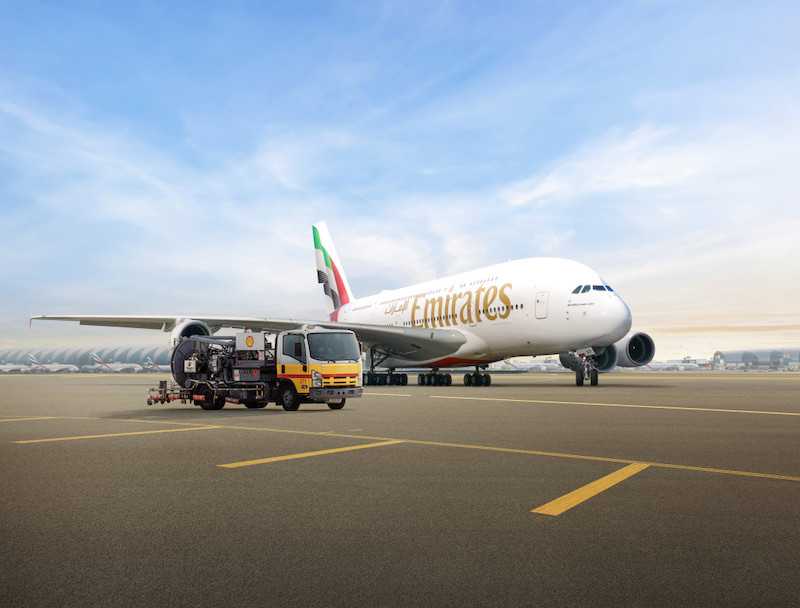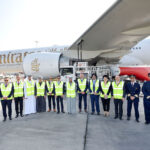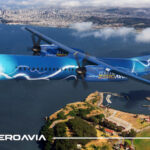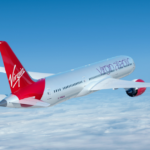
(TAN): Emirates has inked a deal with Shell Aviation for the supply of over 300,000 gallons of blended SAF for use at the airline’s international hub in Dubai (DXB), the airline said.
The first SAF delivery under the agreement is expected to commence before the end of the year, making it the first time that SAF is supplied through the DXB airport fuelling system.
[ALSO READ: Virgin Atlantic launches new Autumn/Winter menu on its flights]
As part of the agreement, Emirates will track SAF delivery and its use data through Avelia, one of the world’s first blockchain-powered SAF solutions. Avelia is powered by Shell Aviation and Accenture, with support from Energy Web together with American Express Global business travel. Through Avelia, Emirates will purchase the physical SAF and associated environmental attributes to help decarbonise its Scope 1 related emissions, while Scope 3 environmental attributes associated to the same physical SAF will be purchased by Shell Corporate Travel to help decarbonise its related business travel.
Tim Clark, the president of Emirates Airline, said: “We are proud to work in partnership with Shell to make a SAF supply available for Emirates in Dubai for the first time, and to utilise the Avelia platform that provides business travellers the flexibility to align their sustainability targets and reduce their environmental footprint when travelling. We hope that this collaboration develops further to provide an ongoing future supply of SAF in our hub, as there are currently no production facilities for SAF in the UAE.”
[ALSO READ: Lufthansa to revamp its short, medium-haul aircraft cabins]
Chu Yong-Yi, VP of Shell Corporate Travel, said: “Emirates and Shell have a long-standing commercial relationship, and it is fantastic to build on this to now work together on decarbonisation. This agreement marks a step forward for the aviation industry in the UAE. Enabling SAF to be supplied at DXB for the first time is an important milestone, and a perfect example of how the different parts of the aviation value chain have a role to play in unlocking progress on SAF. We hope that this can act as a springboard for more action on SAF across the aviation industry in the UAE and region, delivering another step forward for our net zero emissions journey.”
SAF can be blended with conventional jet fuel at a ratio of up to 50%, creating an aviation fuel that is significantly lower in lifecycle carbon emissions. In its neat form, SAF can reduce lifecycle emissions by up to 80% compared to conventional jet fuel.




